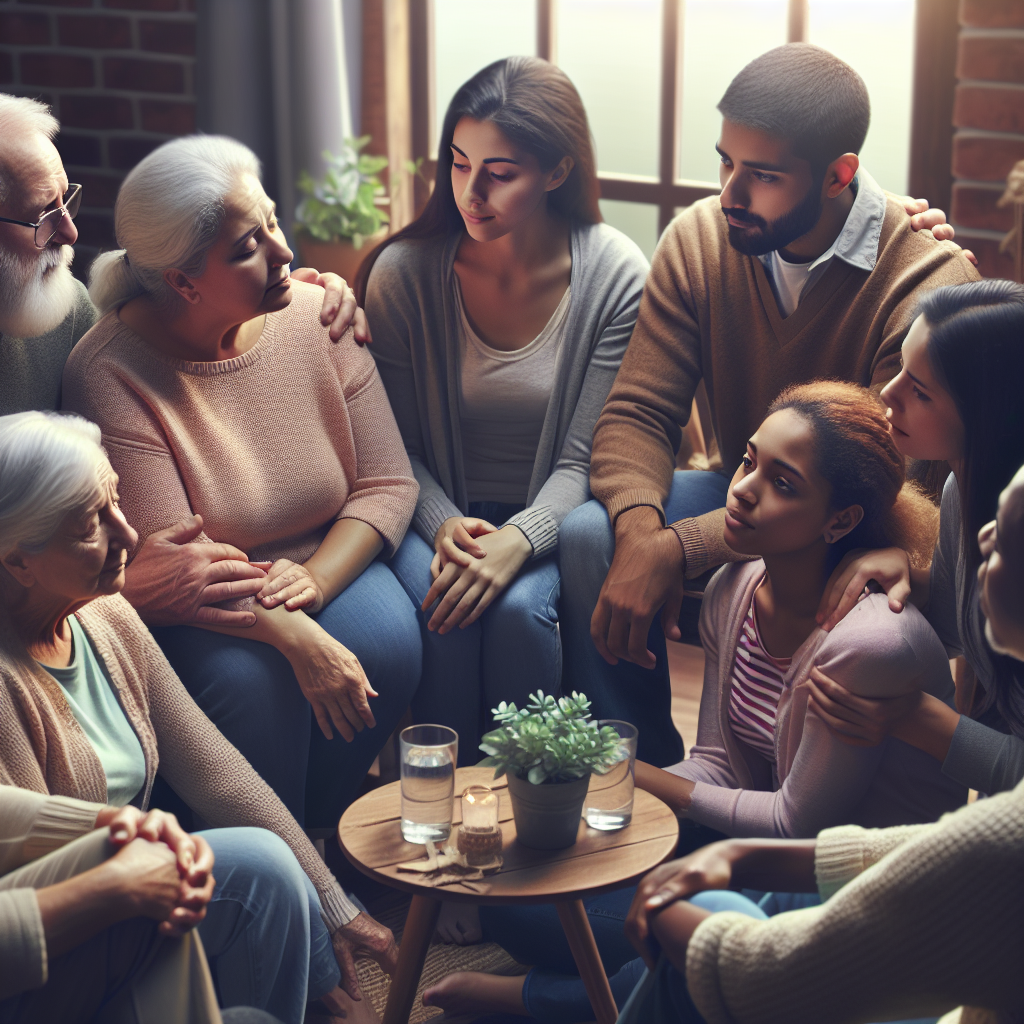Navigating Hospice Care: Making Informed Decisions for Your Loved One
Introduction
When it comes to making decisions about hospice care for seniors, the journey can feel like navigating a maze without a map. You want to ensure your loved one receives the best possible care during their final chapter, but with so many options and emotions swirling around, it’s easy to feel overwhelmed.
Hospice care isn’t just about providing medical support; it’s about offering a holistic approach that encompasses end-of-life care, emotional support, and even spiritual guidance. Imagine having a team of compassionate professionals by your side, dedicated to improving quality of life at the end of life. Sounds comforting, right?
In this blog post, we’ll explore what hospice care for seniors truly entails, from understanding the services available to making informed choices that align with your loved one’s wishes. Whether you’re considering in-home hospice care or looking into various hospice facilities for seniors, we’ve got you covered!
So grab a cup of tea (or coffee, we don’t judge), and let’s dive into the world of hospice care where compassion meets expertise in providing the best possible support for our elderly loved ones.
Understanding Hospice Care for Seniors
When it comes to hospice care for seniors, think of it as a warm, comforting blanket during a challenging time. It’s not just about managing pain; it’s about enhancing quality of life when facing terminal illness. So, what exactly is hospice care? Let’s break it down:
- Definition of hospice care: Hospice care is a specialized type of medical care designed to provide comfort and support to individuals with terminal illnesses. The focus is on quality of life rather than curative treatments. It helps patients live their remaining days with dignity, surrounded by loved ones.
- Differences between hospice and palliative care: While both aim to relieve suffering, hospice care is specifically for those nearing the end of life, typically when a patient has a prognosis of six months or less. Palliative care, on the other hand, can be provided at any stage of illness and alongside curative treatments.
- Eligibility criteria for hospice services: To qualify for hospice services, seniors must have a terminal diagnosis and choose to discontinue curative treatments. A healthcare provider usually confirms this eligibility through documentation.
Did you know? In 2020, approximately 1.6 million Medicare beneficiaries received hospice services, showing just how vital this option is for many families navigating end-of-life decisions.
The beauty of hospice care lies in its holistic approach. It encompasses not just physical health but also emotional and spiritual support for both patients and their families. This means that alongside managing symptoms like pain (which we know can be quite the party crasher), there are also resources available for family counseling in hospice care settings and spiritual support in hospice.
If you’re considering this path for your loved one, remember that it’s perfectly normal to feel overwhelmed. The key takeaway? Embrace the support available through senior hospice services you’re not alone in this journey!
The Importance of End-of-Life Planning
When it comes to hospice care for seniors, planning for the end of life can feel like trying to navigate a maze blindfolded. But fear not! End-of-life planning is not just a checklist; it’s your roadmap to ensuring that your loved one receives the best possible care while respecting their wishes.
Discussing Advanced Directives in Eldercare
Advanced directives are like the GPS of healthcare decisions they guide medical professionals and family members on what your loved one wants when they can no longer voice their preferences. This includes:
- Living Wills: Documents that outline specific medical treatments a person does or does not want.
- Durable Power of Attorney: Designating someone to make healthcare decisions on behalf of your loved one.
Benefits of Early Planning for Families
Starting these conversations early can be a game-changer. Here’s why:
- Reduces Stress: When everyone knows the plan, there’s less room for confusion and anxiety during an emotional time.
- Improves Quality of Life: Tailoring hospice support for families ensures that care aligns with personal values and beliefs.
- Paves the Way for Compassionate Care: Understanding preferences allows caregivers to provide truly personalized senior care plans.
How to Approach the Conversation with Loved Ones
Diving into end-of-life discussions might feel like jumping into a cold pool, but here are some tips to warm up the waters:
- Create a Comfortable Environment: Choose a relaxed setting where everyone feels at ease.
- Be Honest and Open: Share your thoughts and feelings, encouraging them to do the same. Remember, this is about their wishes!
- Acknowledge Emotions: Understand that this conversation can bring up strong feelings. Approach it with compassion and patience.
Did you know? Studies show that families who engage in end-of-life discussions experience less anxiety and make more informed decisions regarding hospice care for seniors.
The importance of end-of-life planning cannot be overstated. It’s about giving your loved ones peace of mind and ensuring they receive compassionate care tailored to their needs. So grab a cup of tea, sit down with your family, and start mapping out this crucial journey together!
Choosing the Right Hospice Services
When it comes to hospice care for seniors, choosing the right services can feel like trying to find a needle in a haystack. But fear not! This section will guide you through the labyrinth of choices, ensuring your loved one receives the best possible care at the end of their journey.
Types of Hospice Facilities for Seniors
First off, let’s break down the types of hospice facilities available:
- In-Home Hospice Care: This option allows your loved one to receive care in the comfort of their own home, surrounded by familiar faces and cherished belongings. Home health aides for seniors can provide personalized care plans tailored to individual needs.
- Facility-Based Hospice Care: If more intensive medical support is required, facility-based hospice services might be the way to go. These specialized centers often have 24/7 staff availability and access to advanced medical equipment.
- Palliative Care Units: Some hospitals offer palliative care units that focus on managing symptoms and improving quality of life without hastening death. This is a great option for those who want comprehensive medical attention while still prioritizing comfort.
In-Home Hospice Care vs. Facility-Based Care
The choice between in-home hospice care and facility-based options often comes down to personal preference and specific health needs:
| Feature | In-Home Hospice Care | Facility-Based Care |
|---|---|---|
| Comfort & Familiarity | High – familiar environment | Variable – new environment |
| Staff Availability | Scheduled visits by hospice nurse | 24/7 on-site staff |
| Pain Management Options | Tailored pain management strategies at home | Advanced pain management resources available |
Evaluating Senior Medical Care at Home Options
If you lean toward in-home hospice care, consider these key factors:
- Assessing Needs: What level of care is required? Will frequent hospice nurse visits suffice, or are additional services like physical therapy needed?
- Family Involvement: How involved are family members willing or able to be? Family counseling in hospice care can help navigate these dynamics.
- Support Services: Look into available resources such as respite care for caregivers of seniors, which provides much-needed relief during this emotional time.
The decision-making process around hospice services can be overwhelming, but taking it step-by-step makes it manageable. Keep communication open with your loved one about their preferences, and don’t hesitate to reach out for professional guidance when needed!
Compassionate Care for Elderly Patients
When it comes to hospice care for seniors, compassion is the secret ingredient that transforms mere medical attention into a nurturing experience. Think of it as the warm blanket on a chilly night essential and comforting. Here’s how compassionate care makes all the difference:
-
The Role of Hospice Nurse Visits in Patient Care
Hospice nurses are like the superheroes of end-of-life care, swooping in with expertise and empathy. They don’t just manage medications; they create a comforting environment where patients can express their feelings and needs. Regular nurse visits ensure that your loved one receives personalized attention, making them feel valued and cared for.
-
Pain Management in Hospice Settings
Effective pain management is crucial in hospice care, ensuring that patients experience as little discomfort as possible. This isn’t just about medication; it’s about understanding the whole person. Techniques can include everything from medication adjustments to holistic approaches like massage therapy or aromatherapy because who wouldn’t want lavender-scented relaxation while dealing with a terminal illness?
-
Holistic Care Approaches for Elderly Patients
Holistic care means addressing not just the physical symptoms but also emotional, spiritual, and social aspects. In hospice, this might involve offering spiritual support in hospice settings or connecting families with community resources. It’s about enhancing quality of life at every stage, ensuring that each day is filled with dignity and grace.
Takeaway: Compassionate care isn’t just nice to have; it’s essential for improving quality of life at the end of life. By choosing hospice services that prioritize emotional support and holistic approaches, you can help your loved one navigate this challenging journey with dignity.
Support Systems for Families and Caregivers
When it comes to hospice care for seniors, the focus is often on the patient, but let’s not forget about the amazing families and caregivers who are navigating this journey. They need support too, and thankfully, there are plenty of resources out there to lighten the load!
Hospice Support for Families
Transitioning into hospice care can feel like stepping into uncharted waters. That’s where hospice support for families comes in! Many hospice organizations offer educational resources, counseling services, and even 24/7 helplines to help you understand what to expect.
Bereavement Support After Loss
The journey doesn’t end when your loved one passes. Grieving is a complex process, and many hospice facilities provide bereavement support for families. This can include counseling sessions, support groups, or even workshops focused on coping strategies. It’s like having a safety net during a time when everything feels topsy-turvy.
Respite Care Options
Caring for a senior in hospice can be both rewarding and exhausting. Enter respite care! This option allows caregivers to take a well-deserved break while ensuring that their loved ones continue receiving quality care. Whether it’s a few hours or a few days, this service can rejuvenate caregivers so they can return with renewed energy.
Community Resources
If you’re looking for additional help, don’t hesitate to check out local community resources! Many areas have support groups specifically designed for family members dealing with terminal illness care for elderly loved ones. These groups offer emotional support and practical advice from those who have walked similar paths.
The Role of Home Health Aides
Home health aides can also play a crucial role in providing compassionate care for elderly patients while offering respite to family caregivers. They assist with daily activities and ensure that your loved one is comfortable at home a win-win situation!
In summary, navigating hospice care involves more than just managing medical needs; it’s about creating a supportive environment where everyone involved feels cared for and understood. By leveraging available support systems whether it’s through formal services or community connections you’re not just enhancing your loved one’s experience; you’re also taking good care of yourself along the way!
Navigating Emotional Challenges During Hospice Care
When it comes to hospice care for seniors, navigating the emotional landscape can feel like trying to find your way through a dense fog. It’s not just about providing physical comfort; it’s also about addressing the emotional and psychological needs of both the patient and their family. Here’s how you can steer through these turbulent waters.
The Importance of Emotional Support
Emotional support is crucial during this time. It’s like having a lifeboat when you’re lost at sea essential for survival. Both patients and families face a whirlwind of emotions, from fear and sadness to even moments of joy and laughter. Understanding that these feelings are normal can help ease some of the burden.
Family Counseling in Hospice Care Settings
Family counseling is often available in hospice settings, providing a safe space for relatives to express their feelings and concerns. Think of it as a family therapy session but with a focus on navigating the end-of-life journey together. These sessions can help families communicate better, resolve conflicts, and ultimately support each other more effectively during this challenging time.
Elderly Patient Support Groups Near Me
Finding local elderly patient support groups can be a game-changer. These gatherings provide opportunities for patients to connect with others facing similar challenges, helping them feel less isolated in their experiences. Plus, sharing stories often leads to finding new coping strategies or just a good laugh when you need it most.
Remember: You’re not alone in this journey! Many resources are available to help both patients and families cope with the emotional ups and downs of hospice care.
In conclusion, navigating emotional challenges during hospice care is about creating an environment where feelings can be expressed openly and support systems are readily available. Embrace these resources they’re designed to enhance the quality of life at the end of life while ensuring that both seniors and their families feel cared for on every level.
Improving Quality of Life at End of Life
-
< li > Managing chronic illness in elderly patients
< li > Symptoms management in palliative care for seniors
< li > Senior life transition planning services








